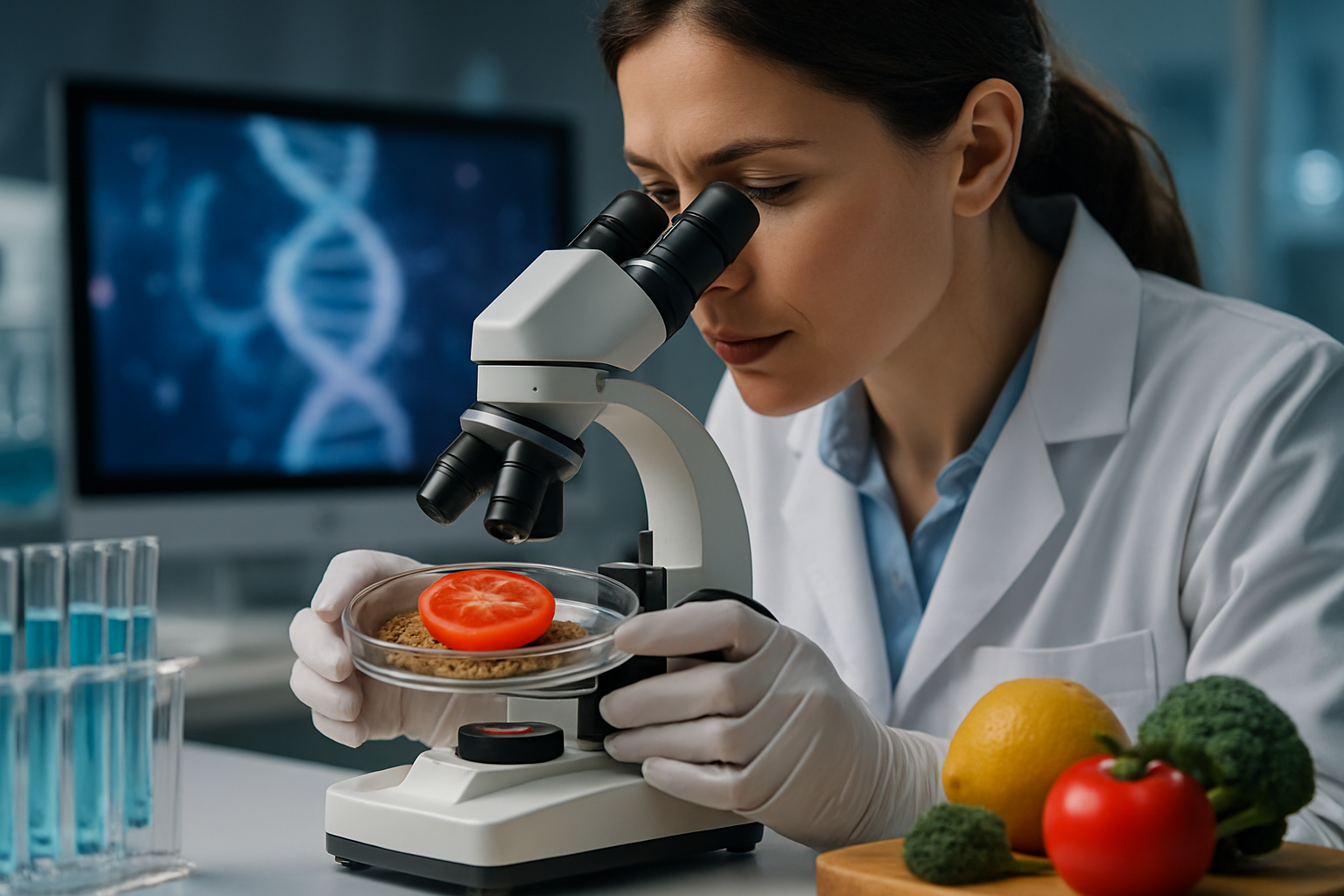Biosynergetics: The Future of Personalized Health Optimization
Are you ready to revolutionize your approach to wellness? Imagine a world where your health regimen is as unique as your fingerprint, tailored to your genetic makeup, lifestyle, and environment. Welcome to the cutting-edge field of biosynergetics, where science meets holistic health to unlock your body's full potential.

The Genesis of Biosynergetics
Biosynergetics didn’t emerge overnight. Its roots can be traced back to the early 21st century when personalized medicine began gaining traction. As genomic sequencing became more accessible and affordable, researchers started exploring how individual genetic variations could influence health outcomes and treatment responses.
Simultaneously, advancements in wearable technology and the Internet of Things (IoT) led to an explosion of personal health data. This confluence of genetic information and real-time physiological data created the perfect storm for a new approach to health optimization.
The term biosynergetics was coined in 2025 by Dr. Elena Rodriguez, a pioneering researcher in systems biology. She envisioned a holistic health model that would integrate genetic predispositions, environmental factors, and lifestyle choices to create personalized wellness strategies.
The Science Behind Biosynergetics
At its core, biosynergetics is about understanding and optimizing the complex interplay between various biological systems within the human body. This approach recognizes that health is not just the absence of disease but a state of optimal functioning across all bodily systems.
Key components of biosynergetics include:
-
Genomic analysis: Identifying genetic variants that influence health risks and potential.
-
Epigenetic profiling: Understanding how lifestyle and environment affect gene expression.
-
Microbiome mapping: Analyzing the gut microbiota to optimize digestive and immune health.
-
Metabolomics: Studying metabolic processes to identify imbalances and optimize energy production.
-
Chronobiology: Aligning interventions with an individual’s circadian rhythms for maximum effectiveness.
By integrating these components, biosynergetics creates a comprehensive picture of an individual’s health status and potential, allowing for highly targeted interventions.
Biosynergetic Interventions: Tailored for You
One of the most exciting aspects of biosynergetics is its ability to generate personalized health protocols. These interventions go far beyond generic advice like eat well and exercise more. Instead, they offer precise recommendations based on an individual’s unique biological profile.
For example, a biosynergetic analysis might reveal that you have a genetic variant affecting vitamin D absorption. Combined with data from wearable sensors showing low sun exposure, this could lead to a recommendation for a specific form of vitamin D supplementation at particular times of day to optimize absorption and utilization.
Similarly, your chronobiological profile might indicate that your peak cognitive performance occurs in the late afternoon. This information could be used to schedule important tasks or workouts during your optimal time windows, enhancing both productivity and physical performance.
The Role of AI and Machine Learning
Artificial intelligence and machine learning play a crucial role in biosynergetics. These technologies are essential for processing the vast amounts of data generated by genomic sequencing, wearable devices, and other sources.
AI algorithms can identify patterns and correlations that might be invisible to human researchers, leading to new insights about health and disease. Machine learning models can predict how an individual might respond to different interventions, allowing for more precise and effective health strategies.
Moreover, as these systems accumulate more data, they become increasingly accurate and personalized. This creates a virtuous cycle of continuous improvement in health recommendations and outcomes.
Challenges and Ethical Considerations
While biosynergetics holds immense promise, it also faces significant challenges. One major hurdle is the need for extensive data collection and analysis, which raises privacy concerns. Ensuring the security and ethical use of personal health data is paramount to the field’s success and public acceptance.
Another challenge lies in the complexity of biological systems. While our understanding of human biology has advanced dramatically, there’s still much we don’t know about how different systems interact. This complexity can make it difficult to predict the long-term effects of biosynergetic interventions accurately.
There are also concerns about equity and access. As with many cutting-edge health technologies, there’s a risk that biosynergetics could initially be available only to those who can afford it, potentially exacerbating health disparities.
The Future of Health: Biosynergetics in Practice
Despite these challenges, the potential benefits of biosynergetics are too significant to ignore. As the field advances, we can expect to see more integrated health solutions that combine wearable technology, genetic testing, and AI-driven recommendations.
Imagine a future where your smartwatch doesn’t just track your steps and heart rate but also analyzes your sweat composition in real-time, providing instant feedback on your hydration and electrolyte levels. Or consider a personalized nutrition plan that adjusts daily based on your activity level, stress markers, and even the air quality in your environment.
Implementing Biosynergetics in Your Life
While full-scale biosynergetic interventions may still be on the horizon, there are steps you can take today to embrace this approach to health:
-
Genetic testing: Consider getting a comprehensive genetic analysis to understand your health predispositions.
-
Wearable tech: Invest in advanced wearable devices that track multiple health markers.
-
Personalized nutrition: Work with a nutritionist who can tailor your diet based on your genetic and metabolic profile.
-
Chronobiology awareness: Pay attention to your natural rhythms and schedule activities accordingly.
-
Regular health data review: Periodically analyze your health data to identify trends and areas for improvement.
Biosynergetic Breakthroughs
• Did you know that biosynergetic research has identified over 100 genetic markers linked to circadian rhythms?
• A recent study found that personalized exercise plans based on genetic and metabolic profiles led to 30% greater improvements in fitness compared to generic programs.
• Biosynergetic interventions have shown promise in managing chronic conditions, with one study reporting a 40% reduction in flare-ups among autoimmune patients.
• Researchers have discovered that certain genetic variants can affect how individuals respond to different types of meditation, allowing for more targeted stress-reduction techniques.
• Emerging evidence suggests that biosynergetic approaches could potentially extend healthy lifespan by up to 15 years by optimizing cellular repair processes.
As we stand on the brink of a new era in health and wellness, biosynergetics offers a glimpse into a future where health interventions are not just personalized but synergized across all aspects of our biology. By embracing this holistic, data-driven approach, we can unlock our body’s innate potential for optimal health and performance. The journey to peak wellness is unique for each individual, and biosynergetics is the compass that can guide us there.




